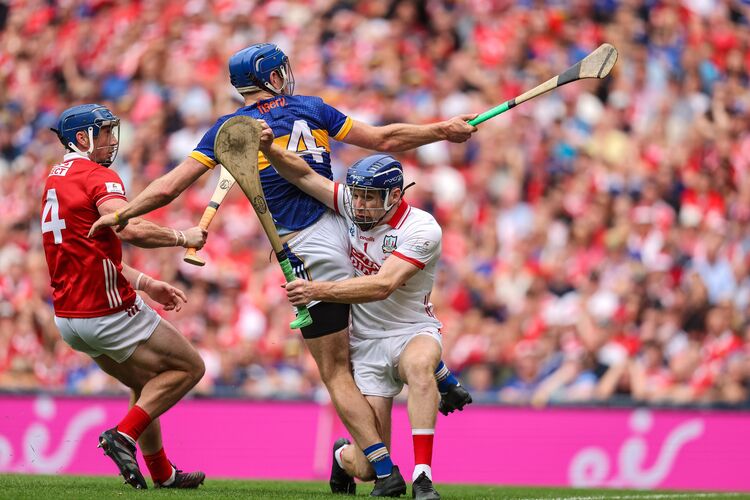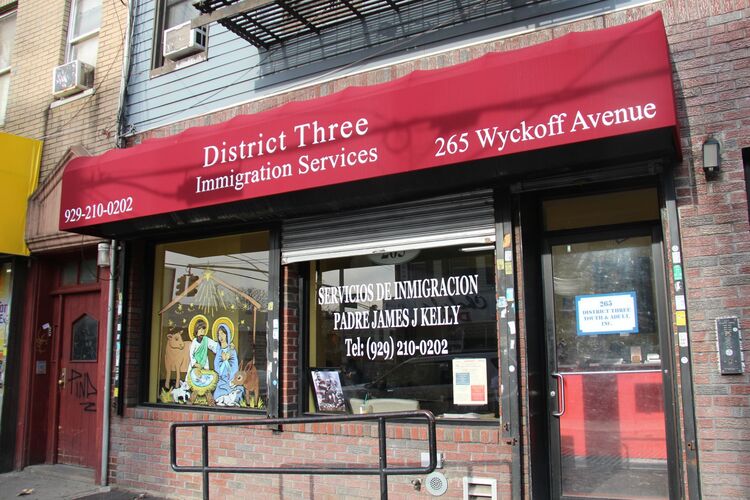[caption id="attachment_66721" align="aligncenter" width="600" caption="Aviva stadium in Dublin"]
Maybe it was because his 11-year-old son Peter played on the team that Rudy Mastrocinque took his role as coach of the King's Park Celtic Under-12s so seriously. The morning of September 11, he forced himself out of bed half an hour earlier than usual so he could leave work that evening in time for a goalkeeping clinic he had organised for his charges. Vice-president for property claims at Marsh and McLennan Securities on the 100th floor of the World Trade Centre's North Tower, he was at his desk by 8:30 a.m., 15 minutes before Flight 11 from Boston sliced through the building. Rudy was 43.
Mark Ludvigsen played second row, served as chairman and operated as chief recruitment officer for the New York Athletic Club rugby team. If any scrum-half ever fancied spending some time in America, Ludvigsen was the man to sort out the visa application and find him a day job. At his memorial service that October, former team-mates came from as faraway as London, Australia and South Africa to collectively eulogise his knack for strengthening the side with canny imports. A bond salesman with Keefe, Bruyette and Woods on the 89th fllor of the South Tower, just above where Flight 175 hit, his friends knew him only as "Lud." He was 32.
Growing up in Georgetown, the capital of Guyana, Nezam A. Hafiz' boyhood dream was to play cricket for the West Indies. An excellent batsman, he captained the Guyana Under-19s, and the sport remained a huge part of his life long after he moved to New York. In 2000, he scored 33 for the United States' national team in a celebrated one-day victory over the MCC and just like at the end of every other season, he donated his equipment to charity in the hope some other immigrant could use them. A devout Muslim, he worked as a computer analyst with Marsh and McLennan on the 94th floor of the North Tower, from where he spoke by phone to his girlfriend at 8:30 a.m. that day. Nezam was also 32.
After the initial shock subsided, Americans wrestled with many issues of importance: one minute wondering why a group of people could hate them this much, the next pondering the place of ordinary things in a world thieved of normality. With lower Manhattan still smoldering and thousands unaccounted for, how soon would it be okay to laugh aloud at something funny and not sound insensitive? Or pick up the remote and watch a show other than news on the television? Or start a day at the office by mocking a long-suffering Mets fan about the superiority of the Yankees? When would it be all right to care about the stuff people used to care about?
The 2001 Ryder Cup was the first international sporting casualty of those debates. Sure, there were legitimate security concerns about a dozen high-profile American athletes traveling abroad but there was also the matter of taste. As it had evolved over the previous decade, with gaudy uniforms and wives / cheerleaders, this golf tournament had become sport at its most jingoistic. At a time when, as John Hawkins wrote in Golfworld magazine, "playing for Uncle Sam meant lacing up a pair of combat boots, not Footjoys," neither team could have celebrated victory like this was just another golf match.
It would have been interesting to hear John J. Doherty's take on that argument. He had the golf bug bad. So bad that at weekends, he would set the alarm clock for sometime between three and four in the morning, drive to one of the public courses that dot Westchester County and get in line for a prized tee-time. No matter that he spent the other five days of the week commuting to his job as vice-president with Aon Insurance in the South Tower. This 56-year-old needed his fix of 18 holes. From what we read of him since his death, the only thing we can say for certain is that Doherty would have envied the Ryder Cup players their three successive days of free golf.
For all the grandiloquent discussions about the pointlessness of sport, the obituaries of the victims which were published in the New York Times each day in the months after showed us how important a factor it was in so many of these truncated lives. Apart from the thousands who were devotees of the city's baseball, hockey, basketball and grid-iron franchises, there were soccer nuts, Gaelic footballers, cricketers, fisherman and rugby players. Sportsmen and women who probably would have understood why, within a couple of weeks of the attacks, touchdowns were being celebrated with just as much fervor as before in the end zones of the NFL. And at least the Mets fans among them would surely have enjoyed President George W. Bush admitting he was rooting against the Yankees in the World Series.
Just because life returned to some sort of normalcy, that doesn't mean we shouldn't stop now and marvel at the diversity and magnitude of their sporting interests. Twenty years removed from Yorkshire, soccer still ruled Howard Selwyn's life. He coached the team his son played for, kept goal for an over-40s outfit known as the Blue Baldies, and spent every other minute maintaining a long-distance love affair with Leeds United. When he couldn't get their game on pay-per-view, he made do with whatever Primera Liga or South American game was on the Spanish-language channel. A broker with Eurobrokers in the South Tower, he opened a shop called Soccer Central near his Long Island home on August 30th.
From a small town in Ecuador, 23-year-old Henry Fernandez had the same affliction as Selwyn. A pastry chef in Windows on the World, the restaurant on the 107th floor of the North Tower, his free time was spent playing endless games of soccer at Flushing Park in Queens. If none of his pals were around, he fell in with whoever he could find. Anything to get a game and retain a link with home. Like every other immigrant who ever arrived in a foreign field, Fernandez wanted to cling to a vestige of his old life and discovered sport is very often the easiest and most convenient way to do that.
It certainly worked for Michael Stewart. He arrived in New York in 1981 and joined the Old Blue rugby club. Born in Belfast, he represented the Scottish Universities team while studying at the University of Stirling although his new team-mates found it hard to believe this man in black, wearing earrings, hirsute sideburns and a goatee could possibly play the game at all. Within two years of arriving, he was captaining one of America's better teams from wing-forward, a position he held down for the next eight years. A father of three, he was vice-president of Carr Futures in the North Tower.
With a mother from Aughavass, County Leitrim, and a father from Garrymore, County Mayo, 34-year-old Dennis McHugh was one of those second-generation children who embraced their Irish heritage with gusto. A prominent member of the Rockland County GAA club, he played center-back for the New York City Fire Department in a charity Gaelic football match against the NYPD at Gaelic Park in the Bronx in July, 2001. Having started out in the financial services industry, McHugh joined Ladder Company 13 three and a half years earlier because, like so many Irish-Americans, he felt a vocation for it. He is survived by a wife and three children.
If sport was a passion in the lives of Dennis McHugh and so many others, there were some among the dead for whom it was a job. After a few years playing in hockey's minor leagues, Mark Bavis worked as a talent scout for the Los Angeles Kings of the NHL. On September 11th, he boarded United Airlines flight 175 at Logan Airport in Boston. He was on his way to California to link up with the team for a training camp where he could assess the progress of some players he had personally recommended. An excellent prospect during his student days at Boston University, he narrowly failed to make it to the NHL. Like him, there were plenty others who might, had their sporting lives yielded one more lucky break, have been somewhere else that day.
After graduating from Delaware State with a business degree in 1985, Keith Glascoe chased his dream of playing in the NFL and twice made it as far as the New York Jets' pre-season training camp. Second time around, things were going well for the defensive lineman until a shoulder injury hindered his chances of making it to the regular squad. He spent a season playing professionally for a club in Italy but realised that fate was conspiring against him on this one. A few years working as a bit-part actor made him yearn for a more regulated existence and in 1998, he joined Ladder Company 21 in New York. As his unit answered the call that morning, he rang his mother to tell him he was on his way. In death, he achieved heroism beyond any grid-iron player.
Martin Boryczewski was another talent whose athletic gifts just didn't stretch quite far enough in the end. Out of college, he gave himself four years to make it into Major League baseball. In that time, he rose through the ranks and was playing Class AA for the Detroit Tigers, two levels below the big time, when he decided financial trading offered a better chance of long-term security. He became a trader with Cantor Fitzgerald in the North Tower and sated his competitive instincts by taking up and quickly mastering fly-fishing. A few weeks before his death, he had bought his sister the tackle necessary to fish and promised to teach her all he knew.
Men like Boryczewski and Glascoe got closer than most to fulfilling their boyhood fantasies. For so many of the deceased however, sport was just an enjoyable hobby, a release from the pressures of their working lives. In the evenings, Lorenzo Ramzey liked to forget about his job as a casualty broker for Aon Insurance and played internet chess against relatives in Florida for hours on end. Originally from Panama, his children called him Grandmaster and his workmates dreaded his lunchtime challenges for a quick game.
Thomas Palazzo's daily ritual began at four a.m. when he would head to the gym and, if weather permitted, go fishing or water-skiing on Long Island Sound before arriving at Cantor Fitzgerald for an 8:30 a.m. start. Alan Merdinger, an accountant for the same firm -- an outfit that lost 658 people that morning -- indulged himself with a couple of hours of Tae Kwon Do each night to relieve stress.
Stephen Tighe went even further than that, leaving Fitzgerald's at three every afternoon to coach soccer teams around Rockville Center, a task he enjoyed so much that, at 41, he was considering quitting the world of finance altogether. Another colleague, Glenn Kirwin, liked to wind down with an hour in the driveway each evening shooting baskets or playing catch with his two young sons.
From scuba-diving to wrestling, weightlifting to lacrosse, it is impossible to find a sport that didn't feature in the life of one of the people who died in New York that brightest of September mornings. Some were fitness fanatics who ran triathlons and thrived on adrenalin rushes, more were couch potatoes who cheered their heroes on from a seat in front of the television. A few were exceptional athletes who, but for providence, might have made their livings away from the offices of a high rise building in New York city. Whatever their interest, however minimal their level of proficiency, sport coursed through so many of them in so many different ways.
"It might reasonably be maintained that the true object of all human life is play," wrote GK Chesterton. "Earth is a taskgarden; heaven is a playground."
Heaven is a playground? There's a thought.
Dave Hannigan is a sports columnist for the Irish Echo. This article originally appeared in Ireland’s Sunday Tribune newspaper in 2001.







